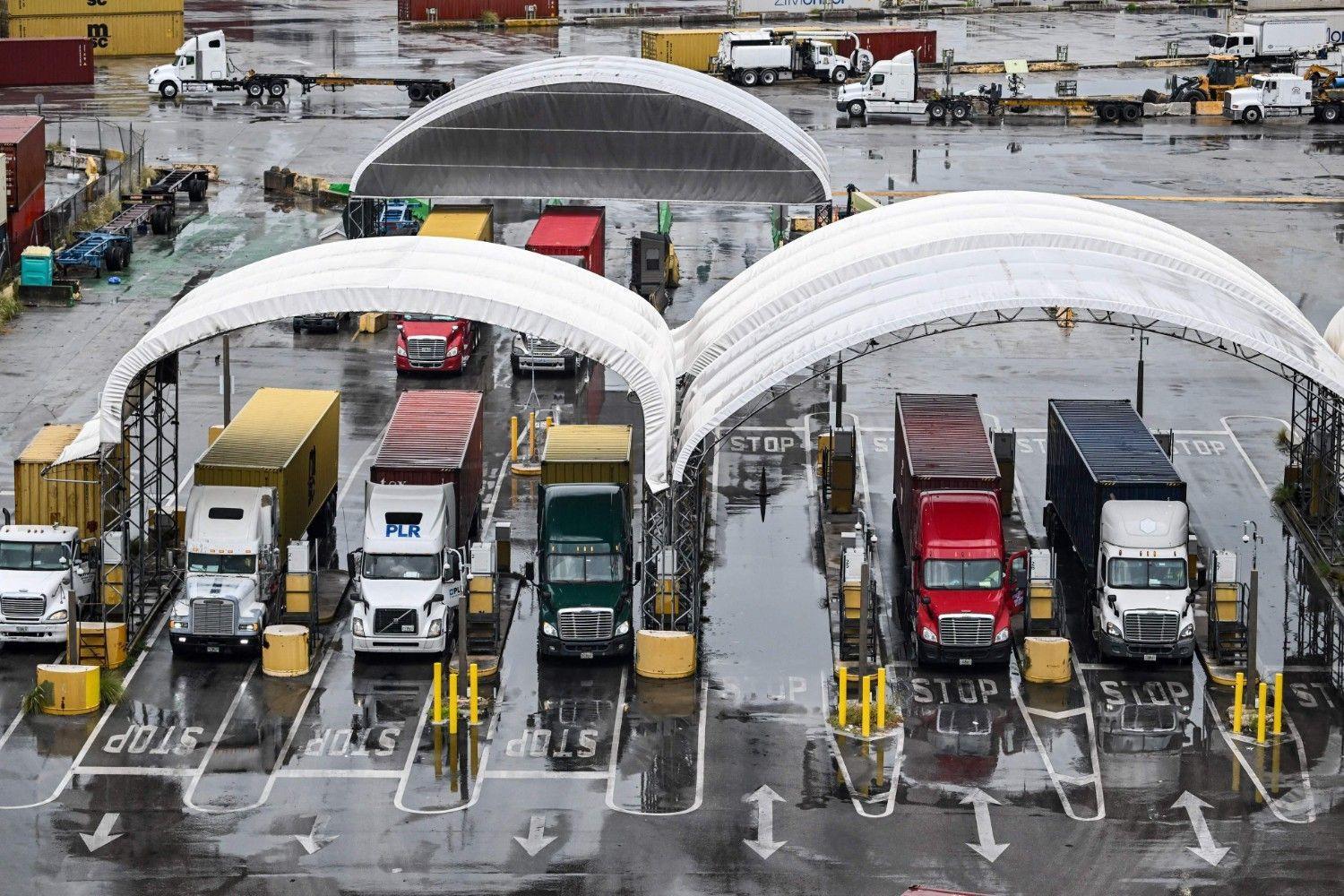
Trucks carrying shipping containers are seen at the Port of Miami in Miami, Florida, on Aug. 7, 2025.
U.S. President Donald Trump announced Thursday punishing tariffs on pharmaceuticals, big-rig trucks, home renovation fixtures and furniture, reviving his global trade war.
The late-evening announcement is the harshest trade policy by the president since last April's shock unveiling of reciprocal tariffs on virtually every U.S. trading partner across the globe.
Starting October 1, "we will be imposing a 100 percent Tariff on any branded or patented Pharmaceutical Product, unless a Company IS BUILDING their Pharmaceutical Manufacturing Plant in America," the Republican wrote on his Truth Social platform.
That move was criticised by American ally Australia, which exported pharmaceutical products worth an estimated $1.35 billion to the United States in 2024, according to the UN's Comtrade Database.
Australian health minister Mark Butler said Friday that the higher rates were "not in the American consumers' interest... particularly given the degree to which their exporters to Australia benefit from that free trade as well."
In a separate post, Trump wrote of a 25 percent tariff on "all 'Heavy (Big) Trucks' made in other parts of the world" to support U.S. manufacturers such as "Peterbilt, Kenworth, Freightliner, Mack Trucks and others."
Foreign companies that compete with these manufacturers in the U.S. market include Sweden's Volvo and Germany's Daimler, which includes the Freightliner and Western Star brands.
Shares in both companies were sharply lower in after-hours trading in Europe.
Trump said the truck tariffs were "for many reasons, but above all else, for National Security purposes!"
Earlier this year, the Trump administration launched a so-called Section 232 probe into imports of trucks to "determine the effects of national security," setting the stage for Thursday's announcement.
Section 232 is a trade law provision that gives the president broad authority to impose tariffs or other restrictions on imports when they're deemed a threat to national security.
Trump has made extensive use of Section 232 to initiate investigations and impose tariffs on imported goods as part of his efforts to bolster U.S. manufacturing and punish countries that he says are taking advantage of the U.S..
The real-estate tycoon also targeted home renovation materials, writing "We will be imposing a 50 percent Tariff on all Kitchen Cabinets, Bathroom Vanities and associated products," as of Oct. 1.
"Additionally, we will be charging a 30 percent Tariff on Upholstered Furniture," he added.
According to the United States International Trade Commission, in 2022 imports, mainly from Asia, represented 60 percent of all furniture sold, including 86 percent of all wood furniture and 42 percent of all upholstered furniture.
Shares in home furniture retailers Wayfair and Williams Sonoma, which depend on these imported goods, tumbled in after-hours trading following the announcement.
Protectionist policies
The tariff onslaught will rekindle fears over inflation in the U.S. economy, the world's biggest.
Trump is on a mission to rebuild manufacturing through protectionist policies that mark a complete reversal of modern U.S. policy to maintain an open and import-dependent economy.
His administration has imposed a baseline 10 percent tariff on all countries, with higher individualized rates on nations where exports to the U.S. far exceed imports.
Trump has also used emergency powers to impose extra tariffs on trade deal partners Canada and Mexico, as well as on China, citing concerns over fentanyl trafficking and illegal immigration.
It was not yet clear how these new tariffs that kick in next week would factor into the existing measures.
EU says US deal shields Europe pharma from new tariffs
The EU's trade deal with the United States shields the bloc's drug exports from tariffs higher than 15 percent, Brussels said Friday.
The EU pointed to the joint statement under which the United States agreed to ensure the tariff rate on pharmaceuticals, semiconductors and lumber does not exceed 15 percent.
"This clear all-inclusive 15 percent tariff ceiling for EU exports represents an insurance policy that no higher tariffs will emerge for European economic operators," said EU trade spokesman Olof Gill.
"The EU and U.S. continue engaging towards implementing the joint statement commitments, while exploring further areas for tariff exemptions as well as wider cooperation," Gill said.
It was not immediately made clear by the U.S. side whether the EU was indeed exempt from the higher new pharmaceutical levies.
The United States this week cut tariffs on auto imports from the EU to 15 percent as part of the agreement, down from 27.5 percent.
The European Commission, which leads trade policy for the 27-country bloc, is working hard to secure carve-outs for other sectors including drinks.
Gill had said Thursday EU trade chief Maros Sefcovic continued to push for cutting tariffs on wine and it remained a "top priority" for Brussels.